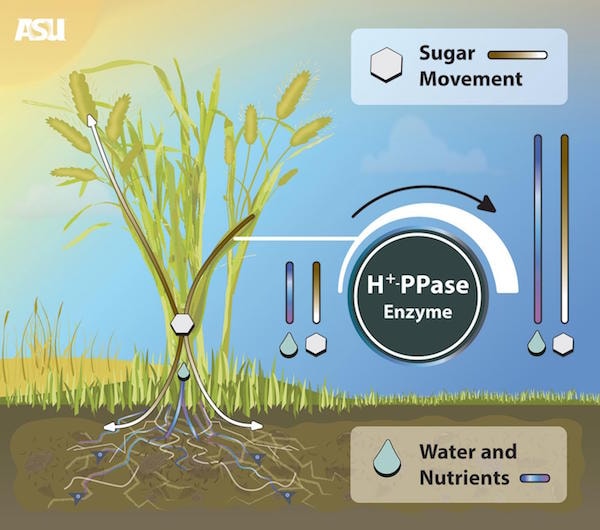Genetically modified plants respond to climate change
(Baonghean.vn) - American researchers recently published in the famous scientific journal Trends in Biotechnology a new method to help increase the tolerance of crops to drought, climate change and saltwater intrusion that are occurring on a large scale.
Associate Professor Roberto Gaxiola of ASU's School of Natural Sciences said the discovery could be a breakthrough in agriculture by improving crop sustainability and performance.
“We have studied how to switch the expression of a gene code through a plant proton pump,” said Gaxiola.
 |
| New cutting-edge technology announced by ASU enhances plant tolerance through the H+-PPase enzyme being transported directly to the stem and roots. |
"The artificial gene will help move photosynthates - molecules formed by photosynthesis in leaves - to places where plants need to grow, such as roots, fruits, and young leaves, and this gene has a similar structure to the natural gene 1 H+-PPase found in plants."
The current popular and overused method in agriculture is the use of fertilizers which causes environmental problems such as water pollution and soil erosion.
By improving the efficiency of water and nutrient absorption, farmers will be able to save money on crop production.
“Larger roots will allow for better uptake of nutrients and water. We can optimize input costs and minimize environmental impacts,” Gaxiola said.
Currently, this genetic modification method is applied to rice, corn, barley, wheat, tomatoes, lettuce and cotton. These crops have significantly increased water absorption capacity and salt tolerance.
Thanh Hien
(According to EurekAlert)
| RELATED NEWS |
|---|

